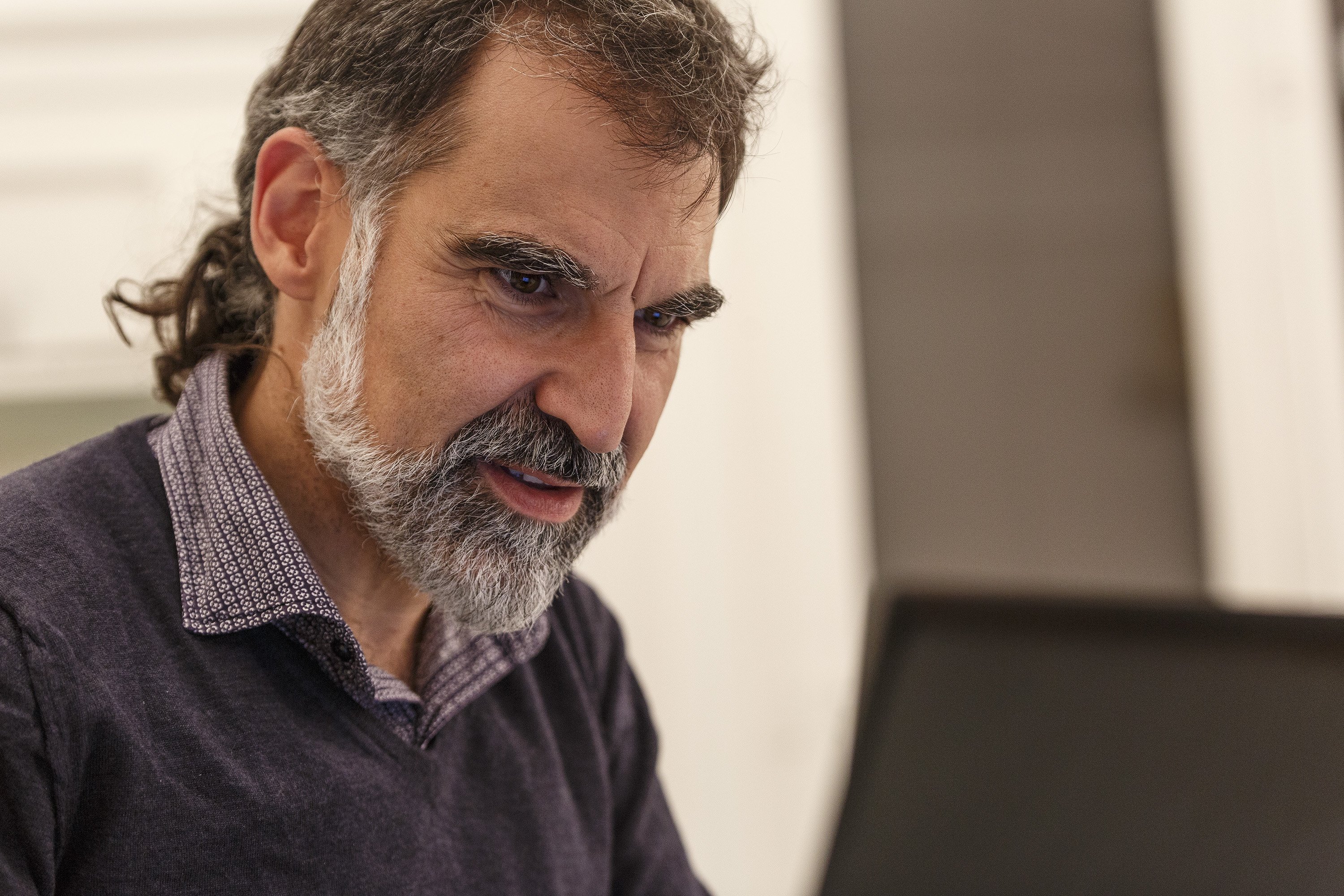Jordi Cuixart, president of Òmnium Cultural, has testified in front of Spain's Supreme Court for an hour and a half today, reasserting his opinion that trying to prevent the 1st October independence referendum was an attack on democracy. But he also made statements clearly designed to help him leave prison, having been held in preventive detention without bail for almost three months. To this end, he declared that the only valid referendum would be one called by the Spanish government.
Cuixart is the only one of the three political prisoners to testify today who didn't stand in the 21st December Catalan election last year and who has no political responsibility, either in the previous government, nor in the one which could be formed following the election.
The defence's strategy is clearly aimed at getting him out of prison, whatever it takes. He left balance to one side, giving testimony clearly accepting the Spanish Constitution. In a similar vein, Jordi Sànchez stated earlier that, if they choose to pursue the unilateral path to independence, he will give up his seat as a deputy in the Parliament.
On the other hand, Cuixart did tell judge Pablo Llarena that all the organisations (including major unions CCOO and UGT), political parties and entities, "have always thought that preventing the people from voting was an attack on democracy".
The president of Òmnium testified that on 20th September, in front of the Catalan Economy ministry, they called for "people to vote in the referendum" and that at "no moment did anyone warn them they were breaking the law".
Like Sànchez, Cuixart explained that he gave clear instructions to end the gathering on 20th September and that, as well as doing so when standing on the Civil Guard cars to be seen and heard, he did so in the street and also on the stage which had seen musical performances throughout the afternoon.
Jordi Cuixart also noted during his statements his "profound pacifist convictions".
Òmnium's president replied to questions from all parties, except the acusación popular1, represented by VOX, a right-wing Spanish party.
Cuixart's lawyer, Marina Roiga, will next week present arguments why her client should leave prison, hoping that today's testimony will help lead to Llarena deciding to offer him bail.
Translator's note:
1. An acusación popular, in Spanish Justice, allows for the public to participate in legal proceedings to defend the law, without showing direct personal harm.

